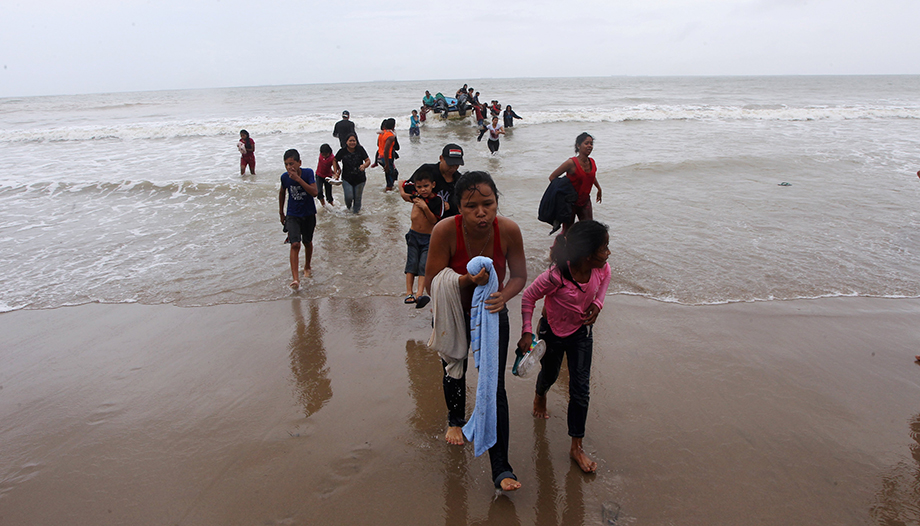The press conference to conclude the Campaign began with the intervention of Cardinal Luis Antonio G. Tagle. Tagle, who emphasized that Share the Journey was "a great moment of encounter, solidarity and, above all, an expression of the Church's love for migrants. Christians, Muslims, Hindus, followers of other religions and those without religion were welcomed as human persons".
The prefect of the Congregation for the Evangelization of Peoples and president of Caritas Internationalis wanted to emphasize that, although the campaign has formally concluded, "the mission continues", especially at this time when the pandemic can "intensify selfishness and fear of strangers".
Increased effort during the pandemic
In this sense, Aloysius John, Secretary General of Caritas InternationalisHe recalled that the key objective of the campaign was to "live out the moral imperative to welcome and offer hospitality to migrants and refugees fleeing injustice, suffering, violence and poverty in search of a dignified life.
The Secretary General of Caritas Internationalis recalled some of the actions that, during these four years, have been promoted from the Caritas epicenter to "share the message that migration is an opportunity to open our arms to welcome the stranger" and valued the efforts that, around the world, have been made by the different "to provide support to migrants and refugees, especially during the AIDS-19 pandemic, allowing them access to food, basic necessities, clothing and, above all, health care".
In a special way he wanted to highlight the work of Caritas in conflict areas such as Lebanon, where the migrant center "supported migrant workers who were imprisoned in the country, unable to return to their countries of origin due to travel restrictions imposed by the COVID-19 pandemic and still suffer the effects of the aftermath of the chemical explosion, of which their employers were also victims"; the work of Caritas Jordan in caring for Syrian migrants and refugees with food and medical assistance or the priceless work of Caritas Bangladesh with the thousands of Rohingya refugees seeking safety in Bangladesh.
The Secretary General of Caritas Internationalis has also invited the community to join in the initiative by lighting a virtual candle of hope on the website of Caritas Internationalis and sharing a message of solidarity with millions of displaced people that they will pass on to Pope Francis.
Also the religious Maria de Lourdes Lodi RissiniIn her intervention via videoconference, the National Coordinator of Caritas in Southern Africa highlighted the work of Caritas in South Africa. In this sense, she pointed out, for example, the work carried out in that area to ensure the entry of undocumented children into the South African educational system or the attention to women who, when they arrive in the country after their husbands, find that these have formed another family and have no resources with which to live or the attention to the thousands of people who were left on the street and without work due to Covid.
Right to live in peace on their land
For its part, Msgr. Bruno-Marie DufféThe Secretary of the Dicastery for the Service of Integral Human Development recalled the four verbs with which Pope Francis calls the Christian community to welcome migrants and which "commit us to undertake a moral, social, political, juridical and spiritual journey with them: Welcome, Protect, Promote and Integrate.
He also wanted to emphasize that "the dignity of the human person, a fundamental principle of Catholic Social Teaching, is what gives meaning and moral translation to the human rights of all people". Particularly important was his call to "work with the countries from which migrants come and support programs of integral human development" because "there is the primary right to be welcomed, but also the right to return to one's homeland, the land of one's ancestors and one's community, to live there in peace".
The campaign "Share the Journey - Sharing the Journey" began in 2017 with the aim of sensitizing the Christian community to the reality of migration and to open our arms to generate a culture of encounter, to ask ourselves and rethink how we welcome the other.
Pope Francis himself emphasized in his opening remarks that "the journey is made in two: those who come to our land and we, who go to their heart, to understand them, to understand their culture, their language. Christ himself asks us to welcome our migrant and refugee brothers and sisters with open arms, with arms wide open. To welcome precisely in this way, with arms wide open".








